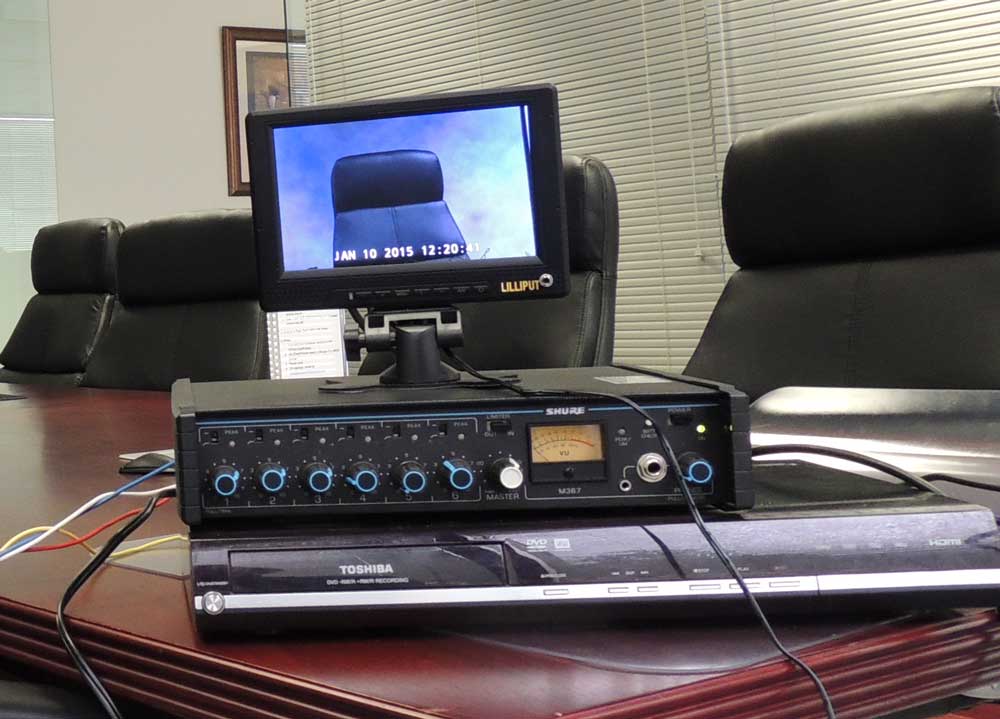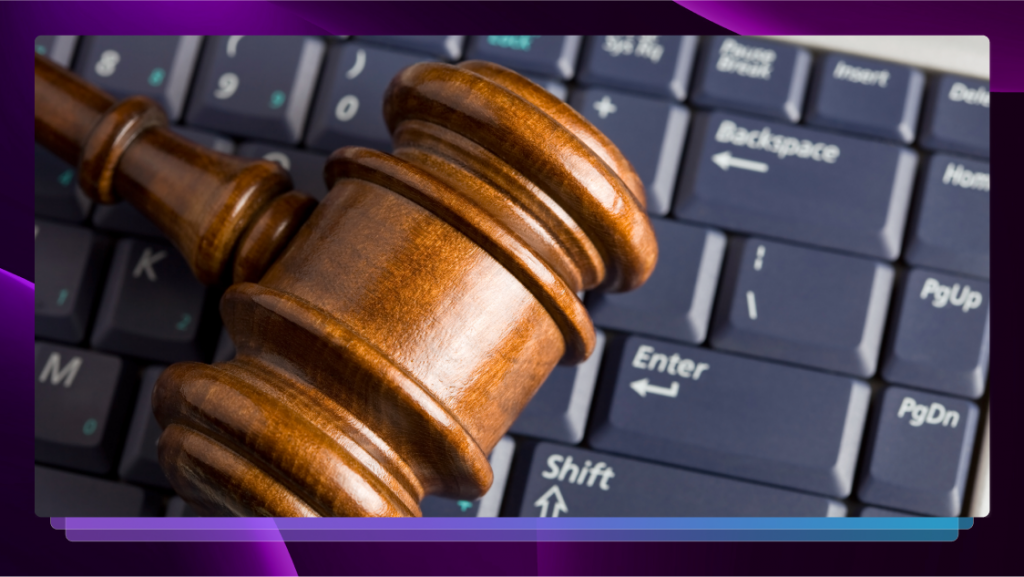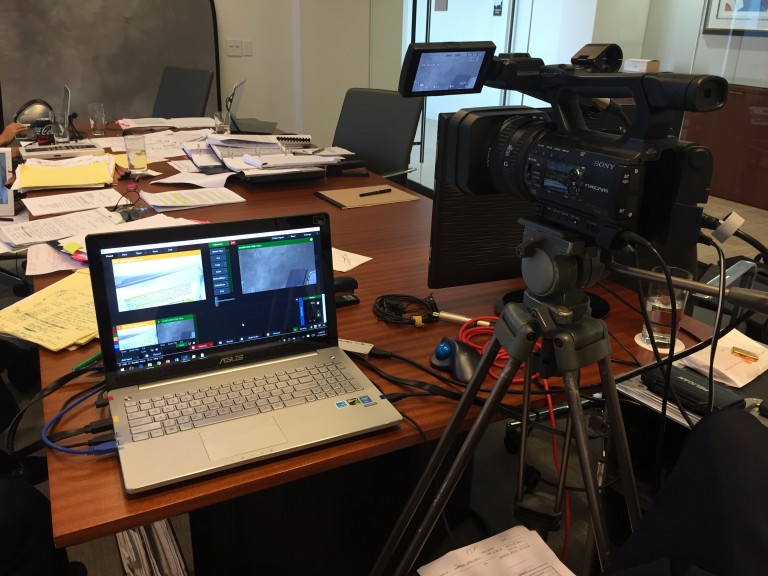Legal video depositions FAQs: Answering your most pressing questions
The Significance of Lawful Video Clip Depositions in Modern Legal Solutions: What You Must Know
Lawful video depositions have ended up being important in today's legal landscape. They offer a multidimensional sight of witness statements that traditional records just can not match. By capturing both verbal and non-verbal communication, these depositions enhance the overall understanding of a witness's credibility. Nonetheless, the efficiency of video depositions rests on different variables, consisting of conformity with legal criteria and best practices (legal video depositions). Exploring these aspects discloses their true relevance in contemporary lawful services
What Are Legal Video Depositions?
Lawful video clip depositions offer as an essential device in the litigation procedure. They entail recording witness statements in a video style, capturing both spoken and non-verbal communication. This method permits lawyers to document the behavior, expressions, and reactions of witnesses, offering a richer context for the statement. Generally carried out in a controlled setting, these depositions are led by attorneys that ask inquiries while a stenotype reporter records the dialogue. The resulting video can be critical for test preparation, as it allows lawyers to analyze the credibility of witnesses and refine their strategies. Furthermore, lawful video depositions can be utilized in various lawful contexts, ranging from civil conflicts to criminal instances. The auditory and visual elements of video clip depositions boost the discussion of proof, making it an important element in the modern-day lawful landscape. In general, they add considerably to the efficiency and efficiency of lawful proceedings.

Benefits of Video Depositions Over Traditional Methods
Video depositions offer various benefits contrasted to standard techniques of taking witness testaments. One considerable advantage is the capability to capture both audio and aesthetic components, supplying an extra thorough document of the witness's declarations. This twin style improves quality and allows legal professionals to reference particular subtleties throughout test preparation. In addition, video clip depositions facilitate remote involvement, making it simpler for witnesses that might be unavailable for in-person looks due to geographical restrictions or health issues.Moreover, video depositions can quicken the general deposition procedure, decreasing the moment and costs connected with travel and logistics. They additionally boost ease of access, as videotaped depositions can be easily shared among lawful groups and referenced any time. This ease adds to better case administration and prep work. In general, video clip depositions stand for a modern-day, effective strategy to gathering witness testaments, aligning with the progressing demands of the legal profession.
The Function of Body Movement and Tone in Testimonies

In legal video depositions, body movement and tone play vital roles in communicating a witness's credibility and dependability. Nonverbal signs can give insights into a witness's mood, affecting how their testament is viewed. Comprehending the effect of these elements is vital for jurors and lawyers alike when assessing the reliability of a statement.
Nonverbal Communication Insights
While verbal interaction is typically highlighted in legal testaments, nonverbal hints such as body language and tone play an essential duty in sharing reputation and emotion. Viewers of depositions may keep in mind that a witness's posture, motions, and facial expressions can considerably influence understandings of reliability. Consistent eye contact may signify self-confidence, while preventing stare could recommend deceit or pain. In a similar way, the tone of voice-- its quantity, pace, and pitch-- can present feelings of sincerity or uncertainty. Lawyers have to be in harmony with these nonverbal signals, as they often provide crucial context that matches spoken words. Understanding these subtleties can enhance the performance of depositions and influence the result of legal proceedings.
Emotional Tone Impact
The psychological tone communicated throughout lawful statements greatly affects exactly how a witness is regarded. Body language, vocal inflections, and facial expressions play vital roles in forming the narrative of a testimony. A witness showing self-confidence via steady eye contact and a calm tone can impart a sense of dependability and interaction. On the other hand, signs of stress and anxiety, such as fidgeting or a shaky voice, might bring about skepticism regarding their account. The nuances of emotional expression can influence the analysis of facts, making it important for legal professionals to recognize these signs. In video depositions, the aesthetic and auditory components combine, emphasizing the value of emotional tone in sharing genuineness and truthfulness within the legal process.
Trustworthiness and Dependability
An essential see this here consider developing credibility and reliability throughout statements depends on the witness's body language and tone of voice. Viewers often depend on non-verbal signs-- such as eye go to website get in touch with, position, and motions-- to examine a witness's sincerity. For instance, a witness that keeps eye call and shows open body language may be regarded as more truthful and reliable than one who stays clear of eye contact or shows up closed off. In addition, tone of voice plays a crucial duty; a constant, calm tone can reinforce the reliability of the statement, while variations in pitch or volume may raise doubts. Eventually, the combination of body movement and vocal tone considerably influences exactly how a witness's declarations are received and interpreted in a lawful context.
Ideal Practices for Carrying Out Video Depositions
Conducting video depositions calls for cautious preparation and execution to guarantee a clear and reliable discussion of testament. First, it is essential to pick a silent, well-lit location to minimize diversions and protected optimal video top quality. The equipment should be checked ahead of time, consisting of electronic cameras, microphones, and lighting, to prevent technological problems throughout the deposition.Next, celebrations involved need to review the layout and treatments beforehand, ensuring that every person recognizes their roles. The deponent needs to be oriented on the process, consisting of exactly how to react clearly and concisely.Additionally, preserving a specialist attitude throughout the session is essential. This includes avoiding from talking over one another and validating that all concerns are routed properly. It is essential to tape-record the deposition in a layout that allows for very easy playback and testimonial, protecting the integrity of the statement for future usage.
Legal Considerations and Conformity Issues
How do legal factors to consider and compliance concerns impact the efficiency of video depositions? Lawful professionals need to browse a complicated landscape of guidelines, making sure that video clip depositions stick to jurisdictional rules and criteria. Conformity with regulations worrying privacy, permission, and tape-recording techniques is crucial. For circumstances, getting specific permission from all celebrations entailed is needed to prevent legal repercussions.Additionally, the admissibility of video proof in court can pivot on conformity with procedural needs. Making certain that the devices utilized satisfies technical criteria is also vital, as inadequate quality can weaken the deposition's reliability.Moreover, lawyers have to recognize any type of certain state legislations that regulate video clip depositions, as these can differ significantly. Failure to address these factors to consider can not just endanger the honesty of the deposition however likewise affect the general situation technique, eventually affecting the customer's legal end results.
Just How Video Depositions Impact Court Perception
While video clip depositions can act as powerful tools in lawful process, their influence on court understanding is significant. The acoustic and aesthetic elements of video clip recordings provide jurors with a much more extensive understanding of witness disposition, reliability, and psychological feedbacks. This multimedia strategy can boost the jurors' capacity to examine the dependability of testimony compared to conventional text-based transcripts.Moreover, video depositions allow jurors to observe body movement, tone of voice, and facial expressions, all of which can influence their analysis of the witness's statements. The visibility of a witness on screen can humanize them, fostering compassion and link, which might guide jurors' viewpoints. Alternatively, a witness who shows up unreliable or evasive on video clip may bring about adverse understandings that influence a jury's choice. Ultimately, the dynamic nature of video depositions plays a crucial duty in shaping exactly how jurors translate proof and reach their judgments.
The Future of Video Depositions in Legal Method
As advancements in innovation proceed to reshape the legal landscape, the future of video clip depositions is positioned for substantial development. Innovations such as expert system, online fact, and boosted video conferencing tools are expected to enhance the deposition procedure and enhance accessibility. Legal professionals might utilize AI-driven analytics to evaluate witness reliability and situation toughness a lot more effectively.Moreover, the combination of online fact could permit juries to experience immersive simulations of depositions, offering much deeper context and understanding. Furthermore, the pattern toward remote depositions is likely to linger, providing greater flexibility for customers and lawyers alike.As remote work ends up being significantly stabilized, video clip depositions will likely come to be typical practice, minimizing expenses and time constraints connected with conventional techniques. Overall, these technical improvements guarantee to improve the effectiveness, efficiency, and ease of access of video clip depositions in lawful method, ultimately transforming exactly how attorneys plan for test.
Frequently Asked Inquiries
Just How Much Do Lawful Video Depositions Generally Cost?

Can Video Clip Depositions Be Made Use Of in Any Kind Of Type of Instance?
Video depositions can be made use of in numerous kinds of situations, including civil, criminal, and family members legislation. Their adaptability allows lawyers to present witness testimonies efficiently, adapting to the certain requirements of different legal situations.
What Equipment Is Needed for a Video Clip Deposition?
To carry out a video clip deposition, important devices includes a top quality camera, microphone, illumination, and a reputable recording tool. Furthermore, a computer with editing software might be required for post-production and formatting the click to read last video.
For how long Does a Common Video Deposition Last?
A normal video clip deposition lasts in between 2 to 4 hours, relying on the intricacy of the instance and the number of concerns positioned. Extended sessions might occur, but breaks are generally included for participant comfort.

Are Video Clip Depositions Admissible in Court?
Video depositions are generally acceptable in court, supplied they adhere to lawful requirements and rules of proof. Their use improves quality and protects witness testimony, helping in the judicial procedure throughout hearings and trials. Legal video depositions have actually become essential in today's legal landscape. In addition, lawful video depositions can be made use of in various legal contexts, varying from civil conflicts to criminal cases. Furthermore, video clip depositions facilitate remote participation, making it less complicated for witnesses who may be not available for in-person appearances due to geographical restraints or health issues.Moreover, video depositions can quicken the overall deposition procedure, reducing the time and expenses linked with traveling and logistics. Making sure that the devices used meets technological criteria is also essential, as inadequate quality can undermine the deposition's reliability.Moreover, lawyers have to be conscious of any details state regulations that regulate video clip depositions, as these can differ substantially. Additionally, the pattern towards remote depositions is most likely to persist, providing greater flexibility for attorneys and customers alike.As remote work ends up being increasingly normalized, video clip depositions will likely come to be conventional method, minimizing prices and time constraints associated with standard approaches.